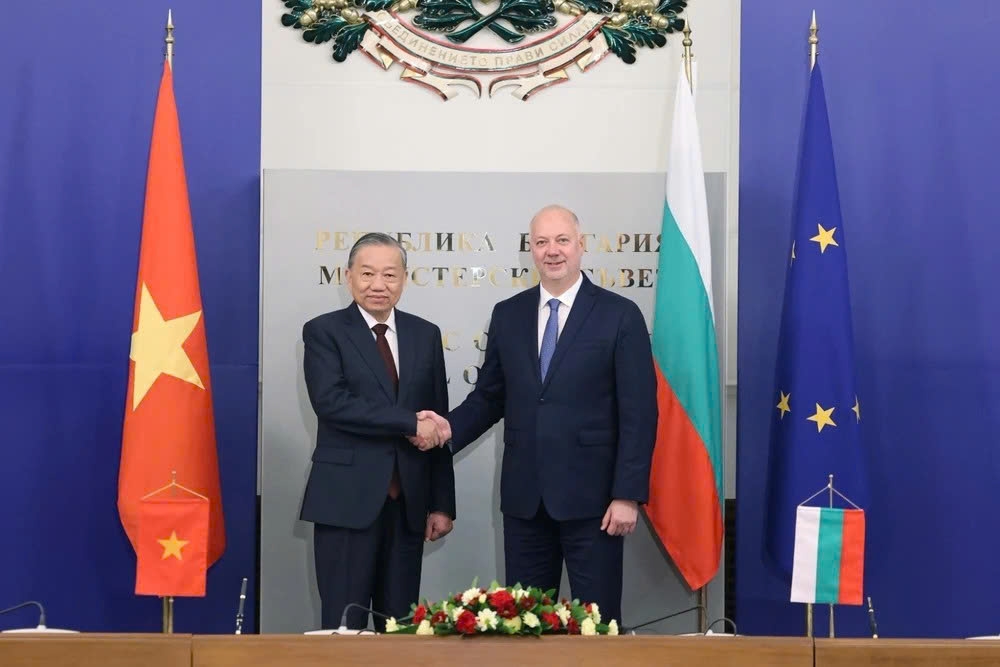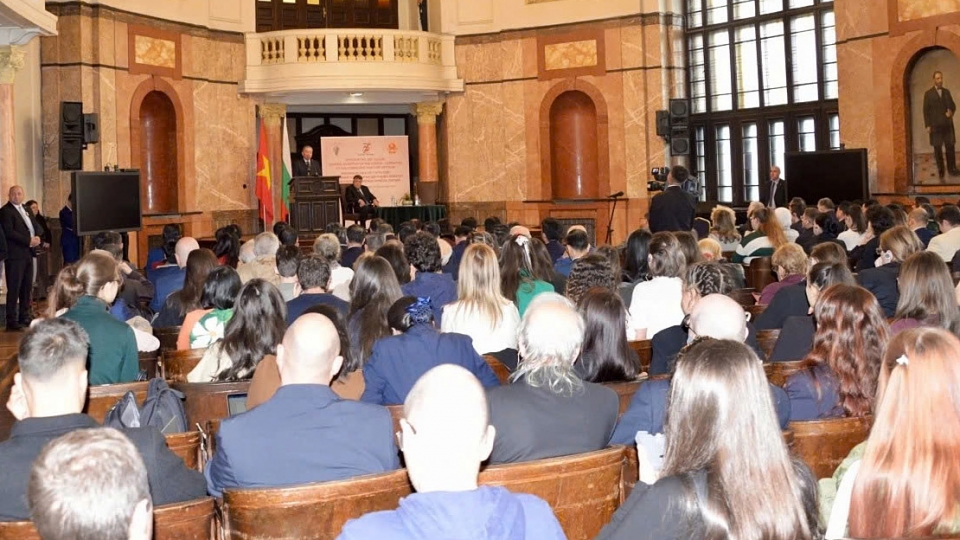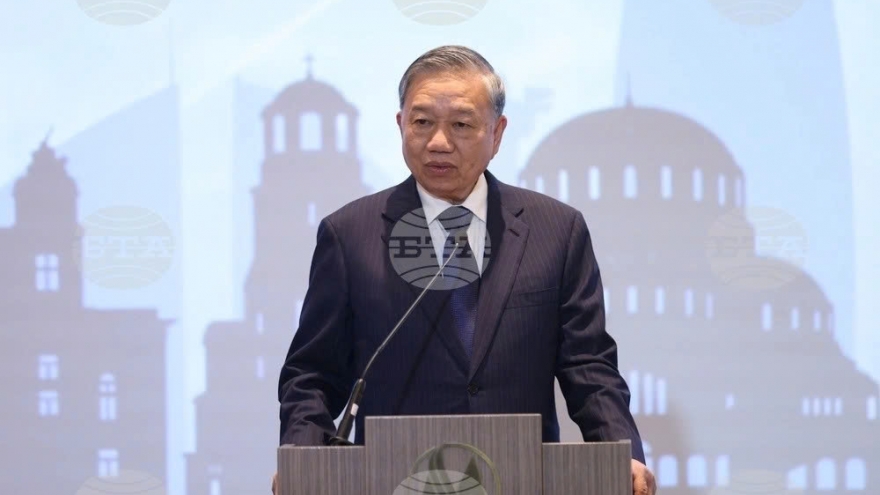Vietnam and Bulgaria have more room to bolster cooperation
VOV.VN - Vietnam and Bulgaria have significant potential for cooperation in other areas beyond traditional ones, such as digital transformation, digital economy, artificial intelligence, cybersecurity, and e-government.

The view was shared by Prime Minister Rosen Zhelyazkov of Bulgaria and visiting General Secretary To Lam of Vietnam during their meeting in Sofia on October 24.
They vowed to make science and technology cooperation a key pillar of the Vietnam-Bulgaria Strategic Partnership – a new partnership framework established during leader Lam’s October 22-24 visit to Bulgaria.
Prime Minister Zhelyazkov warmly welcomed General Secretary Lam’s first official visit to Bulgaria, highlighting its importance in strengthening Vietnam-Bulgaria relations. He congratulated Vietnam on its strong socio-economic development and emphasised that Vietnam is a key and trusted partner of Bulgaria in Southeast Asia.
General Secretary Lam reported the positive outcome of his talks with President Rumen Radev, including the adoption of a joint declaration upgrading relations to a Strategic Partnership.
Both sides agreed to strengthen political trust, promote high-level exchanges, and enhance interaction through Party, State, Government, Parliament, and people-to-people channels.
They also agreed to enhance the coordinating role of foreign ministries and make full use of existing cooperation mechanisms such as the Intergovernmental Committee, and the Science & Technology Committee, while exploring new mechanisms suitable for the newly established Strategic Partnership.
Both sides see economic, trade, and investment cooperation as the main driver of bilateral relations. They underscored the need to leverage the EU-Vietnam Free Trade Agreement (EVFTA) and ensure sustainable supply chains and logistics connectivity via seaports.
General Secretary Lam proposed facilitating Bulgarian goods to enter Vietnam and ASEAN markets, while Bulgaria could serve as a gateway for Vietnamese products into the EU.
He also suggested expanding cooperation in traditional areas such as education, training, culture, tourism, health care, labour, agriculture; promoting the EU’s removal of the “Yellow Card” on Vietnamese seafood exports; and early signing of a health cooperation agreement.
General Secretary Lam thanked Bulgaria for facilitating a stable living, studying, and working environment for the Vietnamese community. He urged Bulgaria to allow eligible Vietnamese residents to acquire citizenship, helping the community integrate further and contribute positively to bilateral relations.
Both sides affirmed close coordination in international forums, particularly the UN and ASEAN-EU. They committed to jointly addressing global challenges such as climate change, energy security, and sustainable development.





